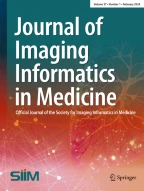Abstract
Increasing workloads and the current austerity measures are putting UK radiology departments under considerable stress. We need to look at the most efficient ways to manage radiology departments in order to cope with increasing demand. Consequently, a system is needed that can compare productivity between radiologists with different jobs. We measured workload in a UK radiology department and compared the productivities of consultants working different numbers of sessions, which are called programmed activities (PAs), to identify the optimal job plan structure for reporting productivity. Reporting data was gathered from electronic records for 14 consultants working different numbers of PA during the period April 2010–March 2011. These were converted into relative value unit (RVU) scores using a modified RCSI RVU system. Crude and net workloads were calculated for each consultant by dividing their total RVU score by the number of PAs they were contracted for and how many they spent reporting. The consultants reported 118,001 imaging studies. There was statistically significant variation in productivity between consultants working different numbers of PAs on χ 2 analysis (p < 0.05). Consultants working 12 PAs were more productive than consultants working 11 PAs, with net workloads of 7636 RVU/PA/year versus net 6146 RVU/PA/year, p < 0.05. Although UK consultants working 12 PAs per week are more productive than their colleagues, the reasons why are unclear. We have identified a method that can be developed further to identify efficient working practices in UK radiology departments. However, a UK-specific RVU system would make this productivity analysis more accurate.
Similar content being viewed by others
References
Board of the Faculty of Clinical Radiology, the Royal College of Radiologists: Medical staffing and workload in clinical radiology in the UK NHS. Royal College of Radiologists, London, 1993
Board of the Faculty of Clinical Radiology, the Royal College of Radiologists: Clinical Radiology: a workforce in crisis. Royal College of Radiologists, London, 2002
Board of the Faculty of Clinical Radiology, the Royal College of Radiologists: How many radiologists do we need? A guide to planning hospital radiology services. Royal College of Radiologists, London, 2008
Department of Health: Healthcare output and productivity: accounting for quality change. Department of Health, London, 2005
Boland GW: Government reform of the National Health Service: implications for radiologists and diagnostic services. Br J Radiol 79:861–865, 2006
Lepanto L, Paré G, Aubry D, Robillard P, Lesage J: Impact of PACS on dictation turnaround time and productivity. J Digit Imaging 19:92–97, 2006
Langer G: Impact of speech recognition on radiologist productivity. J Digit Imaging 15:203–209, 2002
Goyal N, Jain N, Rachapalli V: Ergonomics in Radiology. Clin Radiol 64:119–126, 2009
Department of Health: Terms and conditions—consultants. Department of Health, London, 2003
Board of the Faculty of Clinical Radiology, the Royal College of Radiologists: Good practice guide for clinical radiologists. Royal College of Radiologists, London, 2012
Khan SHM, Hedges WP: Workload of consultant radiologists in a large DGH, and how it compares to international benchmarks. Clin Radiol 68:239–244, 2013
Bhargavan M, Kaye AH, Forman HP, Sunshine JH: Workload of radiologists in United States in 2006–2007 and trends since 1991–1992. Radiology 52:458–467, 2009
Brady A: Measuring Consultant Radiologist Workload: method and results from a national survey. Insights Imaging 2:247–260, 2011
Duszak R, Muroff LR: Measuring and managing radiologist productivity, part 2: beyond the clinical numbers. J Am Coll Radiol 7:482–489, 2010
Pitman AG, Jones DN: Radiologist workloads in teaching hospital departments: measuring the workload. Australas Radiol 50:12–20, 2006
Pitman A, Jones DN, Stuart D, Lloydhope K, Mallitt K, O’Rourke P: The Royal Australian and New Zealand College of Radiologists (RANZCR) relative value unit workload model, its limitations and the evolution to a safety, quality and performance framework. J Med Imaging Radiat Oncol 53:450–458, 2009
Cumming G, Fidler F, Vaux DL: Error bars in experimental biology. J Cell Biol 177:7–11, 2007
Board of the Faculty of Clinical Radiology, the Royal College of Radiologists: Clinical workload: guidance on radiologists’ reporting figures. Royal College of Radiologists, London, 2012
Monaghan DA, Kassak KM, Ghomraw HMK: Determinants of radiologists’ productivity on private group practices in California. J Am Coll Radiol 3:108–114, 2005
Berlin L: Liability of interpreting too many radiographs. AJR 175:17–22, 2000
Thrall JH, Meehan MJ, Welton DG: Comparison of productivity and cost of full-time and part-time faculty in an academic department of radiology. J Am Coll Radiol 3:335–339, 2006
Reiner BI, Krupinski E: The insidious problem of fatigue in medical imaging practice. J Digit Imaging 25:3–6, 2012
Lee CS, Nagy PG, Weaver SJ, Newman-Toker DE: Cognitive and system factors contributing to diagnostic errors in radiology. AJR 201:611–617, 2013
Vertinsky T, Forster B: Prevalence of eye strain among radiologists: influence of viewing variables on symptoms. AJR 184:681–686, 2005
Mezrich R: Academic RVU: a system for measuring academic productivity. J Am Coll Radiol 4:471–478, 2007
Author information
Authors and Affiliations
Corresponding author
Appendix
Appendix
If n = 3 for all data groups, a gap of 2 arms between the error bars means that p ≈ 0.05. If n ≥ 10 for all groups, p ≈ 0.05 with a gap of 1 arm. In our datasets, n = 3 for 11 PAs and n = 7 for 12 PAs. This would make p ≈ 0.05 with a gap of somewhere between 1 and 2 arms.
Rights and permissions
About this article
Cite this article
Khan, S.H.M., Hedges, W.P. What is the relation between number of sessions worked and productivity of radiologists—a pilot study?. J Digit Imaging 29, 165–174 (2016). https://doi.org/10.1007/s10278-015-9825-1
Published:
Issue Date:
DOI: https://doi.org/10.1007/s10278-015-9825-1
